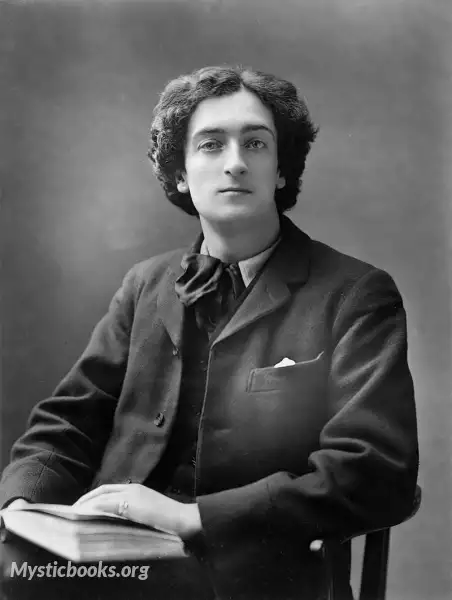
Timeline
Title
Country/Nationality
Richard le Gallienne
Richard Le Gallienne was an English author and poet. The British-American actress Eva Le Gallienne (1899–1991) was his daughter by his second marriage to Danish journalist Julie Nørregaard (1863–1942).
He was born Richard Thomas Gallienne in Liverpool, England, to a middle-class family. He attended the (then) all boys public school Liverpool College. After leaving school he changed his name to Le Gallienne and started work in an accountant's office in London. In 1883, his father took him to a lecture by Oscar Wilde in Birkenhead. He soon abandoned this job to become a professional writer with ambitions of being a poet. His book My Ladies' Sonnets appeared in 1887, and in 1889 he became, for a brief time, literary secretary to Wilson Barrett. In the summer of 1888 he met Wilde, and the two had a brief affair. Le Gallienne and Wilde continued an intimate correspondence after the end of the affair.
He joined the staff of the newspaper The Star in 1891 and wrote for various papers under the name Logroller. He contributed to The Yellow Book, and associated with the Rhymers' Club.
His first wife, Mildred Lee, and their second daughter, Maria, died in 1894 during childbirth, leaving behind Richard and their daughter Hesper Joyce. After Mildred's death he carried with him at all times, including while married to his second wife, an urn containing Mildred's ashes. Rupert Brooke, who met Le Gallienne in 1913 aboard a ship bound for the United States but did not warm to him, wrote a short poem "For Mildred's Urn" satirising this behaviour.
In 1897 he married the Danish journalist Julie Nørregaard. She became stepmother to Hesper, and their daughter Eva was born 11 January 1899. In 1901 and 1902, he was a writer for The Rambler, a magazine produced by Herbert Vivian intended to be a revival of Samuel Johnson's periodical of the same name.
In 1903 Nørregaard left Richard, taking both of his daughters to live in Paris. Nørregaard later sent Hesper to live with her paternal grandparents in an affluent part of London while Eva remained with her mother. Julie later cited his inability to provide a stable home or pay his debts, alcoholism, and womanising as grounds for divorce. Their daughter Eva would grow up to take on some of her father's negative traits, including womanising and heavy drinking.
Le Gallienne subsequently became a resident of the United States. He has been credited with the 1906 translation from the Danish of Peter Nansen's Love's Trilogy, but most sources and the book itself attribute it to Julie. They were divorced in June 1911. On 27 October 1911, he married Mrs. Irma Perry (née Hinton), whose previous marriage to her first cousin, the painter and sculptor Roland Hinton Perry, had been dissolved in 1904. Le Gallienne and Irma had known each other for some time and had jointly published an article as early as 1906. Irma's daughter Gwendolyn Hinton Perry subsequently called herself "Gwen Le Gallienne" but was almost certainly not his natural daughter, having been born circa 1898.
From the late 1920s, Le Gallienne and Irma lived in Paris, where Gwen was by then an established figure in the expatriate bohème and where he wrote a regular newspaper column.
Le Gallienne lived in Menton on the French Riviera during the 1940s. During the Second World War he was prevented from returning to his Menton home and lived in Monaco for the rest of the war. His house in Menton was occupied by German troops and his library was nearly sent back to Germany as bounty. Le Gallienne appealed to a German officer in Monaco, who allowed him to return to Menton to collect his books. During the war Le Gallienne refused to write propaganda for the local German and Italian authorities and, with no income, once collapsed in the street owing to hunger.
In later times he knew Llewelyn Powys and John Cowper Powys.
Asked how to say his name, he told The Literary Digest the stress was "on the last syllable: le gal-i-enn'. As a rule I hear it pronounced as if it were spelled 'gallion,' which, of course, is wrong." (Charles Earle Funk, What's the Name, Please?, Funk & Wagnalls, 1936.)
A number of his works are now available online.
He also wrote the foreword to "The Days I Knew" by Lillie Langtry 1925, George H. Doran Company on Murray Hill New York.
Le Gallienne is buried in Menton in a grave whose lease (license No. 738 / B Extension of the Trabuquet Cemetery) does not expire until 2023.
Books by Richard le Gallienne
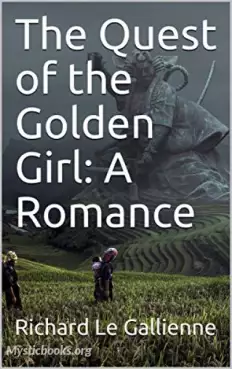
The Quest of the Golden Girl
The main character fears that he will never get married and performs a long pilgrimage whose goal is the perfect companion, the girl God meant for him. On the way he meets many people and encounters many interesting situations till, finally returning...
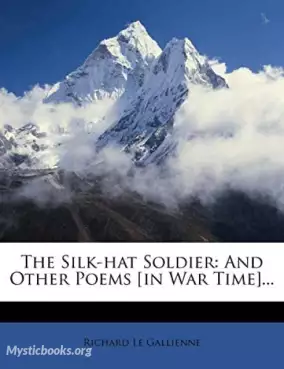
The Silk-Hat Soldier and Other Poems in War Time
The poems in this collection reflect the poet's thoughts and feelings about the war, its causes, and its effects on society and humanity. "The Silk-Hat Soldier and Other Poems in War Time" is a collection of poetry written by Richard le Gallienne, pu...
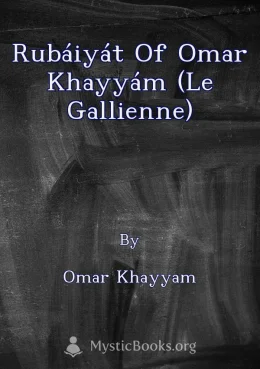
Rubáiyát of Omar Khayyám (Le Gallienne)
The Rubáiyát of Omar Khayyám is a collection of quatrains, or four-line poems, attributed to the 11th-century Persian poet Omar Khayyám. The poems are characterized by their fatalistic and hedonistic themes, and they have been translated into many la...
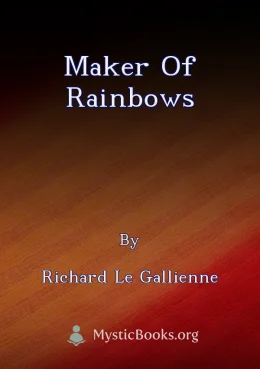
Maker of Rainbows
A collection of enchanting fairy tales that transport readers to a world of wonder and imagination. Filled with charming characters, magical creatures, and whimsical adventures, these stories will captivate the hearts of young and old alike.
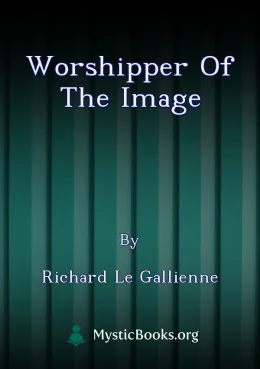
Worshipper of the Image
The Worshipper of the Image is a gothic psychological novel that explores the depths of obsession and the destructive power of unrequited love. Antony, a poet struggling with artistic stagnation, encounters a death mask in an antique shop that bears...
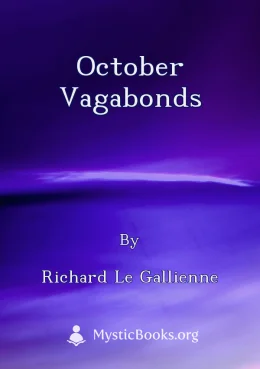
October Vagabonds
In 'October Vagabonds,' Richard Le Gallienne recounts a solitary journey of self-discovery. Embarking on a lengthy walk from their secluded hermitage to New York City, he and his companion, Colin, experience the beauty and tranquility of nature, meet...
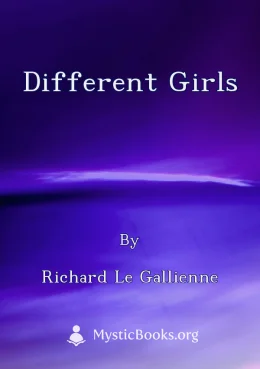
Different Girls
This collection of short stories, published in *Harper's Magazine* between 1895 and 1906, presents a unique perspective on young women's lives in late 19th-century America. The stories depict girls from various backgrounds, exploring their everyday e...
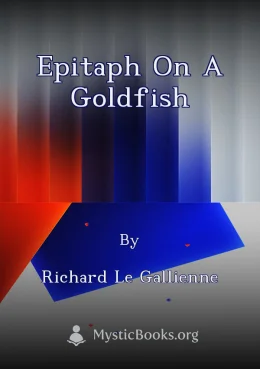
Epitaph On A Goldfish
This short poem, written by Richard Le Gallienne, explores the themes of death, beauty, and the fleeting nature of life through the lens of a goldfish's demise. The speaker, addressing the dead fish, reflects on its shimmering scales and the way it s...

Best Dog Stories
This collection of adult stories by Jack London explores the complex relationship between humans and dogs. The stories range from heartwarming to heartbreaking, and they all offer a unique glimpse into the world of these loyal companions. Some of the...
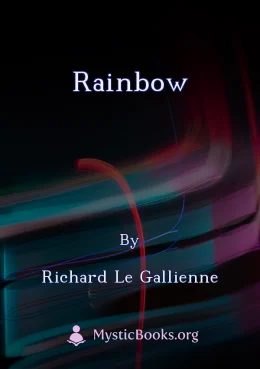
Rainbow
The Rainbow, a collection of poems by Richard Le Gallienne, explores themes of love, beauty, nature, and the fleeting nature of life. Through evocative imagery and introspective reflections, Le Gallienne contemplates the wonders and complexities of e...
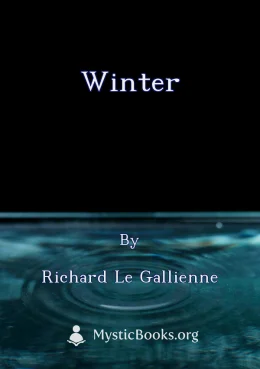
Winter
Richard Le Gallienne's 'Winter' captures the essence of this evocative season through vivid descriptions and evocative language. Languidly traversing the landscapes of winter, Le Gallienne's imagery paints a vivid picture that is as beautiful as it i...